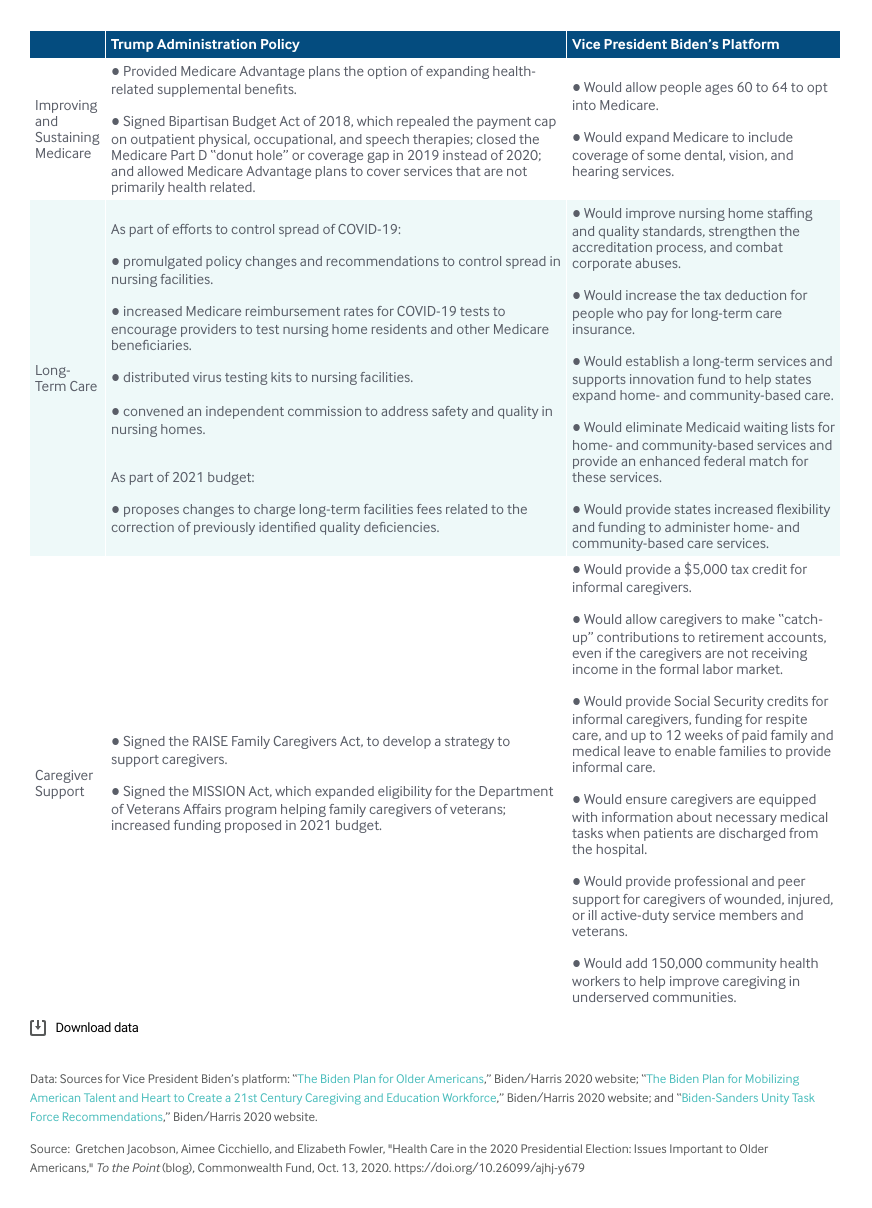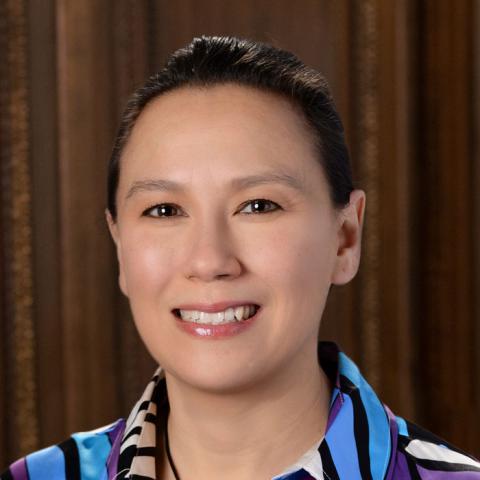The Issue
Older Americans traditionally make up the biggest voting bloc in U.S. elections, with the number of people age 65 and older growing by more than 30 percent in the past decade. Because older Americans made up such a high proportion of the electorate, policymakers tend to focus on the health care issues important to them — like improving or expanding Medicare, long-term care, and caregiver support — particularly in an election year. Others blog posts in this series focus on additional issues that matter to both older and younger Americans, including the affordability of prescription drugs and health insurance coverage.
The Candidates’ Approaches
Both candidates have expressed support for health care issues that older Americans care about, including Medicare, which has typically enjoyed strong bipartisan support. Medicare is the largest individual payer of health care costs in the United States, giving it immense leverage in the overall system.
Improving and Expanding Medicare. Recognizing the significant gaps in Medicare coverage, the Trump administration allowed Medicare Advantage plans (i.e., health insurance plans that provide benefits to Medicare beneficiaries) to cover an expanded set of health-related benefits. President Trump also signed the Bipartisan Budget Act of 2018, which allowed Medicare Advantage plans to cover services that are not directly health related, such as rent subsidies or meal assistance. The Act also closed the Medicare Part D “donut hole” or coverage gap one year earlier than planned. Vice President Biden has said that he would improve traditional Medicare by filling notable gaps in coverage, namely dental, hearing, and vision services. In addition, Biden would lower the age of Medicare eligibility from 65 to 60 to provide more coverage options for older adults.
Long-Term Care. Like most prior administrations, the Trump administration has not dedicated much attention to improving the affordability and quality of long-term care. After nursing homes experienced an outsized number of COVID-19 cases and deaths, the Trump administration promulgated regulations to help prevent and control infection outbreaks, distributed testing kits, and convened an independent commission to address the safety and quality of care in nursing homes.
Part of Vice President Biden’s platform is focused on improving access to home- and community-based long-term care. His stated goals include improving nursing home staffing and quality standards, combatting corporate abuses, and increasing the tax deduction for people who pay for long-term-care insurance. Several proposals are aimed at helping states expand their Medicaid home- and community-based service programs to keep enrollees out of nursing homes. These include eliminating Medicaid waiting lists for home- and community-based services, and providing states increased flexibility and funding to administer these services.
Caregiver Support. Formal and informal caregivers are a critical component of home- and community-based long-term care. The Trump administration has signed into law two efforts aimed at improving caregiver support. One requires the Secretary of Health and Human Services to develop a strategy to support caregivers and the other expands a program that provides financial support to family caregivers of some veterans.
Vice President Biden’s platform includes several measures to support formal and informal caregivers. These include financial support for informal caregivers, such as providing tax credits and giving families 12 weeks of paid leave to provide informal care. In addition, proposals suggest nonfinancial support for caregivers, including equipping them with instructions on medical tasks and adding 150,000 community health workers to help improve caregiving in underserved communities.

Implications of the Candidate’s Approaches
To assess the implications of the candidates’ approaches to health care for older adults, the public might consider the following questions:
How do the candidates address the solvency of the Medicare program?
The Medicare Hospital Insurance Trust Fund, which pays for beneficiaries’ hospital bills, is projected to be insolvent by fiscal year 2024 — just three years away. Neither the Trump administration nor Vice President Biden’s campaign has proposed a plan for directly addressing the solvency of the trust fund. The Trump administration’s proposals for reducing Medicare spending, including his most recent budget, could help to extend the solvency of the trust fund. A plan to address Medicare’s solvency could include increasing taxes, requiring beneficiaries to pay a larger share of their health care costs, increasing federal spending for Medicare, or reducing payments to health care providers.
How do the candidates address the gaps in Medicare’s coverage of services?
While Medicare helps to pay for many medical care services, the program has notable gaps. Long-term care, which accounts for one-third of beneficiaries’ spending on health care services, is not covered by Medicare. As a result of regulations and legislation signed by President Trump, Medicare Advantage plans have the option to cover services that help people to live independently in their homes, such as remote monitoring. However, relatively few plans have chosen to offer these benefits and traditional Medicare does not cover these services. Vice President Biden’s platform states that he would expand traditional Medicare to include coverage of dental, hearing, and vision services, although this would likely require legislation.
Is anything missing from the candidates’ approaches to long-term care and caregiver support?
Nursing home facilities have had a disproportionate number of COVID-19 infections and deaths among residents, leading many to suggest that health policy should focus on helping people to remain in their homes and stay out of nursing facilities. Yet doing so requires sufficient funding and support for caregivers. Middle-income Medicare beneficiaries who do not qualify for Medicaid but cannot afford a long-term-care policy, often face the greatest challenges in affording long-term care. While some of Vice President Biden’s proposals, such as tax credits and paid leave, may help middle-income beneficiaries, these measures will not cover the cost of long-term, home-based care. As a result, many families will continue to struggle to afford this care.





